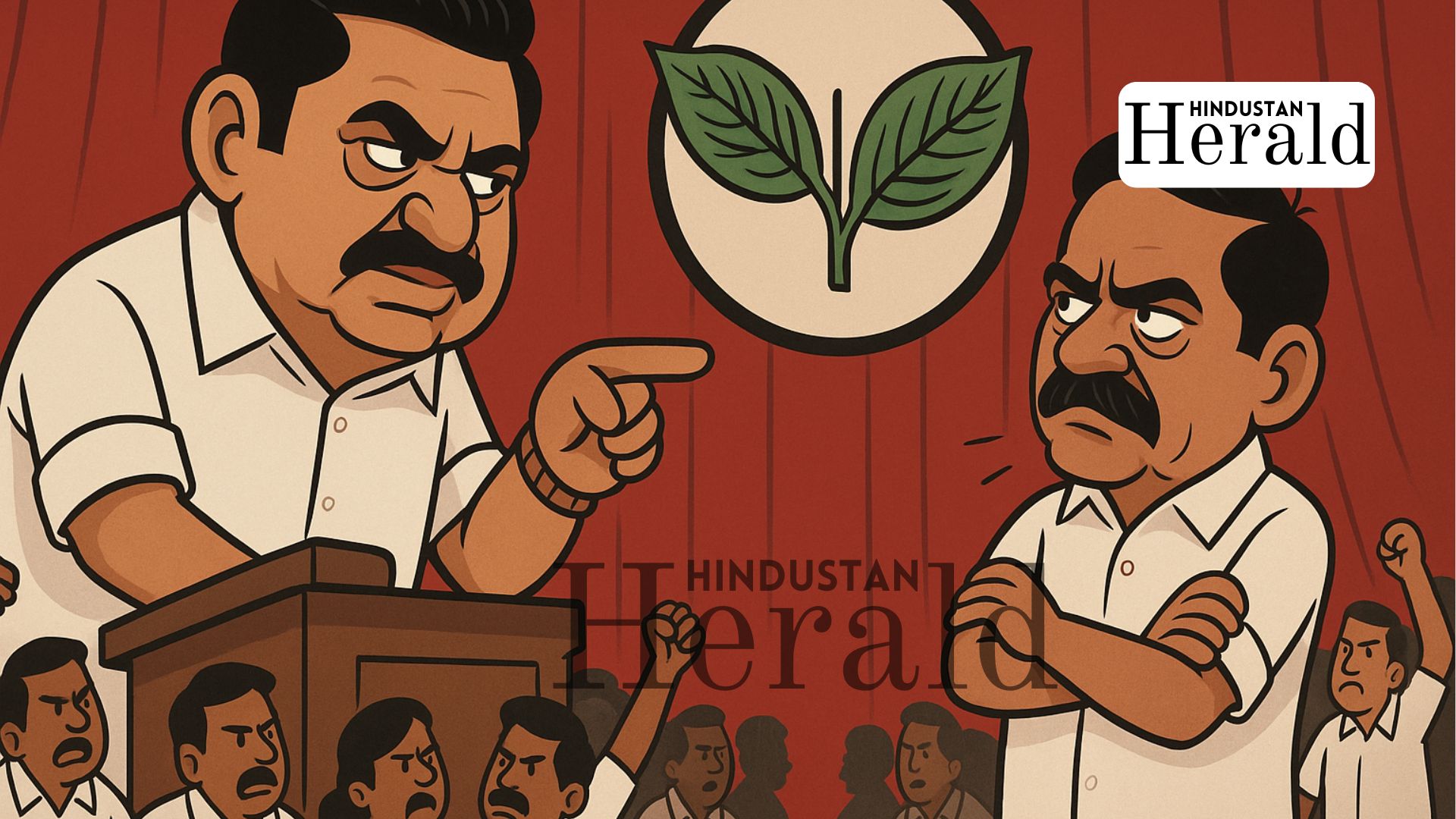Chennai, September 6: Trouble has once again spilled out of the AIADMK. This time it is veteran leader K. A. Sengottaiyan who finds himself in the crosshairs of party boss Edappadi K. Palaniswami (EPS). By Friday evening, Sengottaiyan was out of every post he held. His followers too were shown the door. The timing was no accident. Just hours earlier, he had thrown down a challenge reinstate expelled leaders in ten days, or face consequences.
A Swift and Ruthless Response
EPS didn’t wait around. By late afternoon, official orders came through: Sengottaiyan was no longer the state organising secretary. He also lost his role as Erode (Rural West) district secretary, positions that gave him direct influence with cadres. Anyone seen standing with him in recent unity meetings was removed as well.
For a man known to clamp down quickly on dissent, the move was expected. But the choice of target has shocked many in the party. Sengottaiyan isn’t a lightweight. He has been part of the AIADMK story since the MGR years, served as minister under multiple governments, and still commands respect among the grassroots. Removing him may silence the immediate challenge, but it risks stirring up deeper resentment.
Old Foes, New Friends
If EPS thought the expulsion would leave Sengottaiyan isolated, the opposite seems to be happening. O. Panneerselvam (OPS), who himself was forced out by EPS during the bitter 2022 tussle, was quick to back Sengottaiyan. Speaking in Bodinayakanur, he praised the call for reconciliation. V. K. Sasikala, once the party’s power centre, chimed in too, saying the AIADMK could not hope to beat the DMK without standing together.
The BJP’s Tamil Nadu chief, Nainar Nagenthran, also welcomed the push for unity, a move that set off fresh speculation about Delhi’s hand in the whole affair. On the other side, VCK leader Thol Thirumavalavan dismissed it outright, warning that Sengottaiyan might just be fronting for the BJP and noting pointedly that he hadn’t named which leaders he wanted back.
Campaign Stage, Boiling Undercurrents
While all this churned, EPS carried on with his “Makkalai Kappom, Tamilagathai Meettpom” tour. In Theni, he thundered against the DMK, accusing it of corruption and failure. But the undercurrent was hard to ignore. According to The Times of India, OPS loyalists disrupted his rally, shouting slogans for unity and pressing for reinstatement of the sidelined leaders. EPS refused to respond, brushing aside the issue altogether.
That silence, however, spoke volumes. In politics, what a leader doesn’t say often carries as much weight as what he does.
Where the AIADMK Stands
The reality is plain: EPS controls the party apparatus, the headquarters, and most of the district units. Yet the Sengottaiyan episode shows that his authority is not absolute. A veteran raising his voice has already attracted heavyweight backing. Among the cadre, whispers of discontent are bound to grow louder.
Unity, or at least the memory of it, still tugs at the AIADMK rank and file. Many remain uneasy about the way OPS and Sasikala were pushed out. Sengottaiyan has tapped into that unease, whether by design or instinct.
The party now faces a dilemma. Cracking down on rebels may keep EPS firmly in command in the short term. But heading into the 2026 elections, the optics of a divided house could be devastating. The DMK under M. K. Stalin may have its share of troubles, yet it stands to gain every time the AIADMK chooses to fight itself instead of its rival.
For the AIADMK, the choice is stark: close ranks, or bleed slowly.
Stay ahead with Hindustan Herald — bringing you trusted news, sharp analysis, and stories that matter across Politics, Business, Technology, Sports, Entertainment, Lifestyle, and more.
Connect with us on Facebook, Instagram, X (Twitter), LinkedIn, YouTube, and join our Telegram community @hindustanherald for real-time updates.
Covers Indian politics, governance, and policy developments with over a decade of experience in political reporting.






